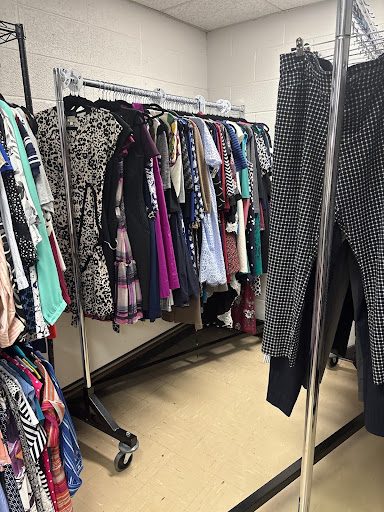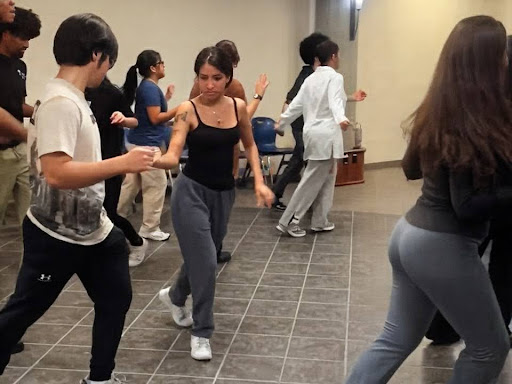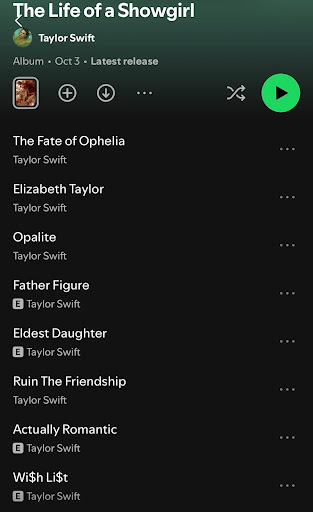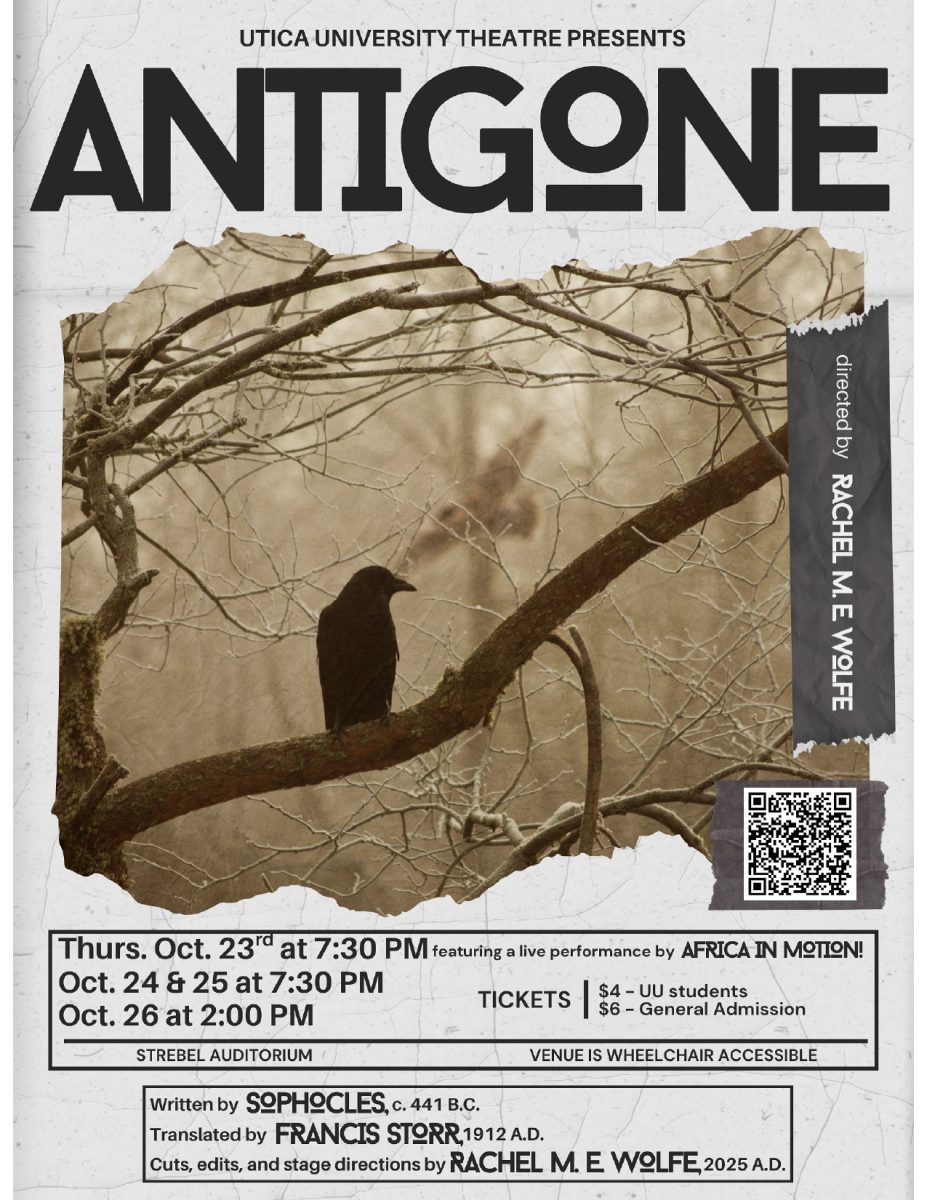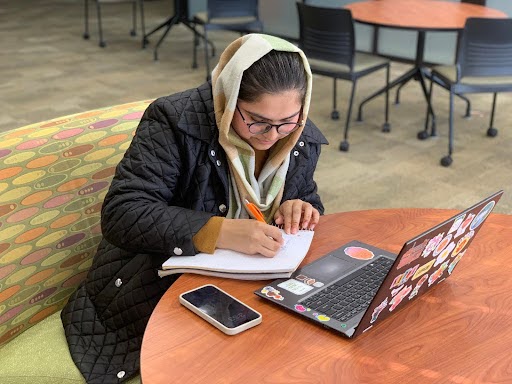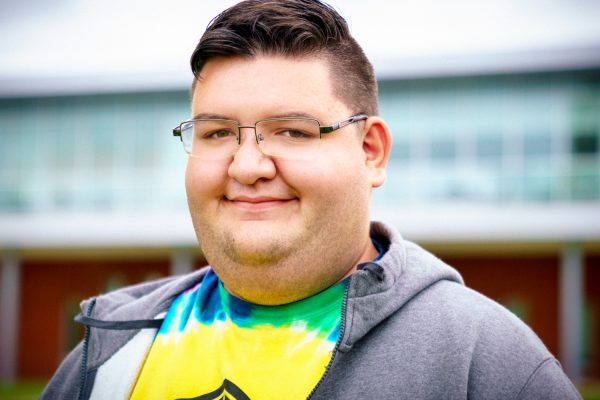The offices of International Education and Diversity, Equity and Inclusion office hosted a Pio-Talk on April 19 addressing the silent harm of deadnaming and misgendering toward Utica College’s trans and non-binary communities.
The use of deadnaming and misgendering has been an issue for a while, and the talk was used as a safe space for people to discuss their experiences and educate others about the severity of this problem. Attendees also discussed resources and ways of prevention.
“Deadnaming is when someone calls out their birth name,” said Dylan Bennett, a UC student and the event coordinator for the Gender-Sexuality Alliance (GSA). “The name they no longer associate with. Misgendering is when a person calls someone by the gender they don’t go by or used to go by but don’t anymore.”
Recent Posts
- Men’s Hockey Team ready to face off in season opener on Friday
- Dr. Todd Pfannestiel to step down as Utica University president on Dec. 31
- Career Center relaunches Career Closet and plans November networking empowering event
- Dance Night sponsored by Fuerza Latina
- Driven to Win: How Bennett Melita Became Utica’s Top Runner
During the conversation, three people shared their stories about dealing with these issues, One of them was Bennett but the other two wished to not have their names revealed. The first source talked about gender dysphoria.
“A good portion, though not all of transgendered people, face a condition known as gender dysphoria, which can amplify the harm in a deadnaming or misgendering incident,” the source said. “Gender dysphoria is a feeling of distress, anxiety, depression and even discomfort because a person’s gender identity differs from the gender that they were assigned with at birth.”
The source went on to further explain how gender dysphoria doesn’t just present itself to people who are transgendered, but it can also be present in others who identify as binary or non-binary. They then went on to state the occasions where they have dealt with these issues before and how it’s all greatly affected them. After that, they explained some ways on how to show that you are accepting of people who are of any gender or transgendered.
“I would like you all to know that asking a student for pronouns on the first day of classes, or even putting your pronouns in your email signature whether you’re obviously she/her or he/him,” the source said. “These are good ways to signal that your class will be accepting towards transgender and non-binary students.”
Bennett spoke next, talking not only about their coming out stories, but also about the few experiences that they have had with silent harm. One of the experiences that they were vocal about was when they had a situation where they applied for an internship and didn’t get it, to which someone said the reason why was: “It’s not because you’re trans, it’s because you cause too much drama.”
They then explained how while they did handle it, it still hurt them because there was no need for the first part of their response nor was there any reason for them to give such a response.
The final source read remarks prepared for the event. They included a story on how their name slowly changed over time from the past to where they are now. However, the speech went deeper than that as they explained how they introduced themselves the way they did during certain times of their lives; from when they were just a kid to who they are now.
After the speakers had finished, faculty members spoke about the resources that can help students that may be struggling with the silent harm that’s been inflicted on them.
“One resource is the Gender Wellness Center which is a place with a team of medical professionals, mental health professionals and we network with certain surgeons in the Bassett Healthcare Network,” a representative from the Gender Wellness Center in Oneonta said. “It’s a full, comprehensive transgender health care facility that also along with mental medical services, is very helpful with advocacy.”
At the end of the event, an attendee asked for advice about those going through their transition, especially for those who are younger.
“My biggest advice personally would be to remember that while things may seem very difficult now for you, there is still a community there for you,” Bennett said.



